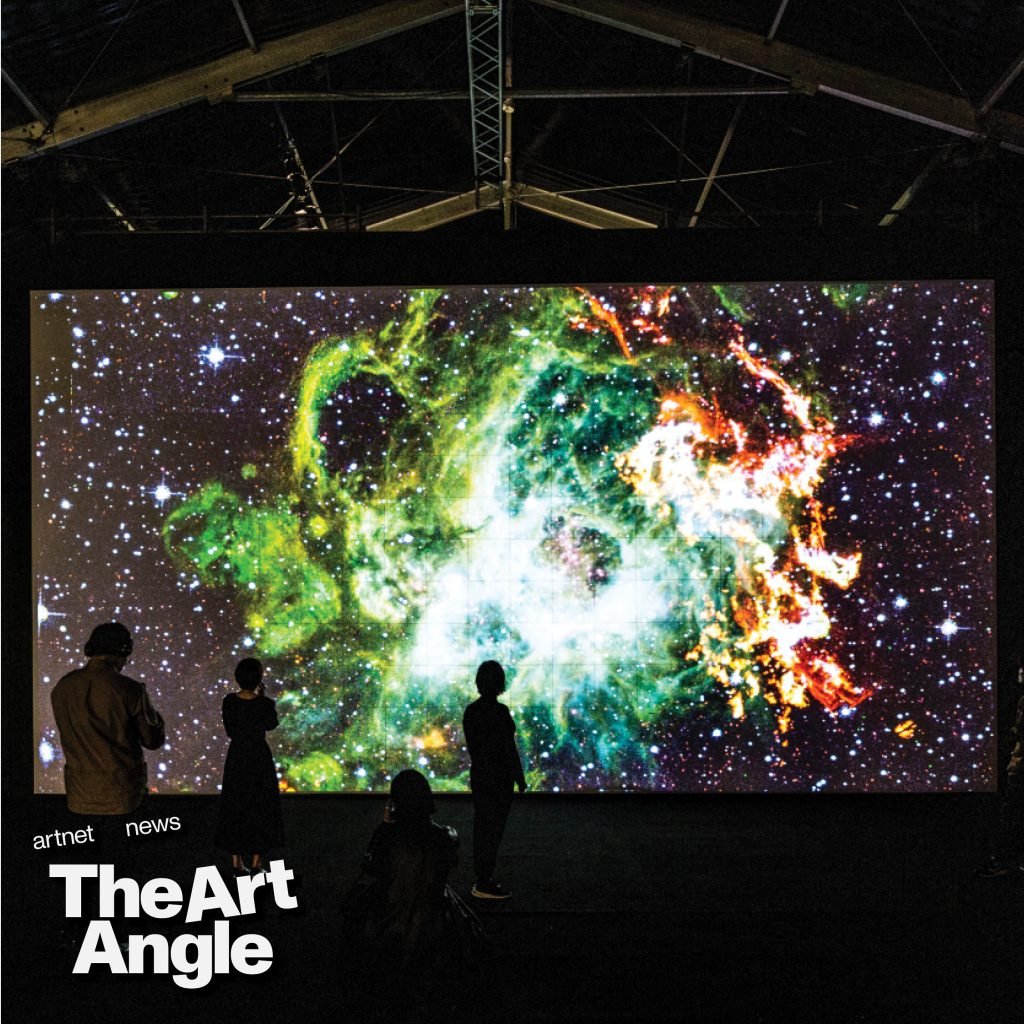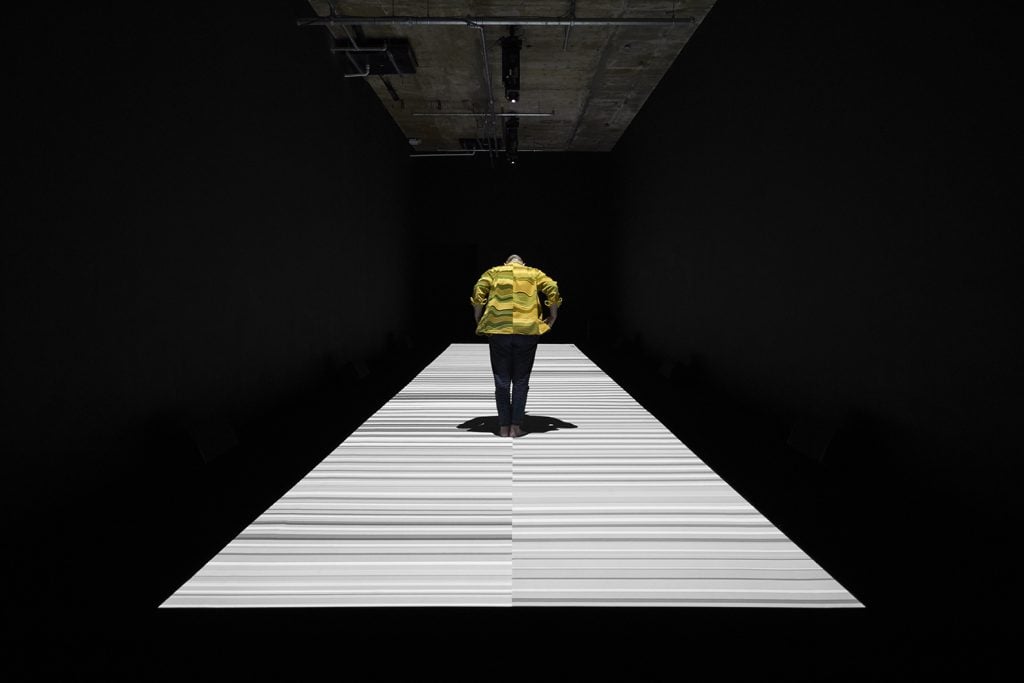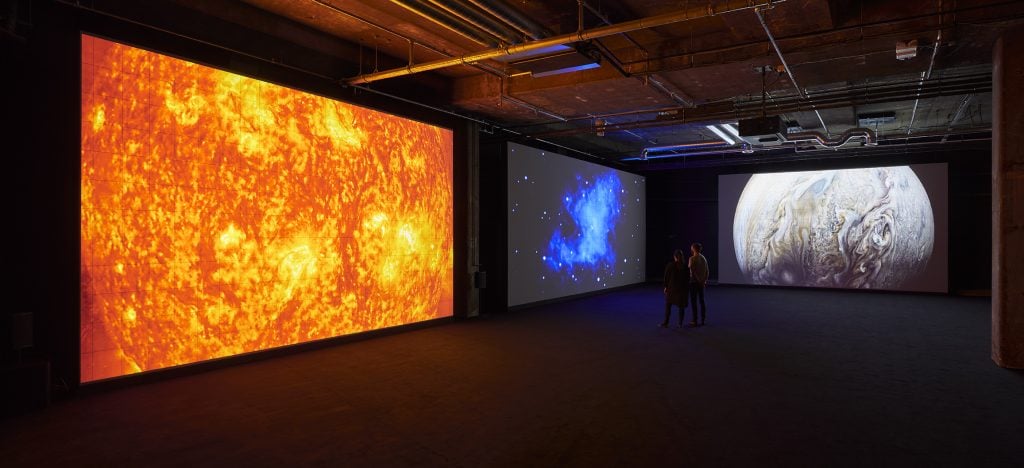The Art Angle
The Art Angle Podcast: Elusive Artist Ryoji Ikeda Wants You to Bask in His ‘Data-Verse’
Ikeda really doesn't care if you don't like his work.

Ikeda really doesn't care if you don't like his work.

Artnet News

Welcome to the Art Angle, a podcast from Artnet News that delves into the places where the art world meets the real world, bringing each week’s biggest story down to earth. Join us every week for an in-depth look at what matters most in museums, the art market, and much more with input from our own writers and editors as well as artists, curators, and other top experts in the field.
It’s hard to describe the experience of a work by Ryoji Ikeda. The Japanese artist has worked as an experimental musician, performer, researcher, and art-maker, and he brings it all together for immense, immersive installations that fill the senses. But while the word “immersive” has come to connote Instagram bait, Ikeda’s works are anything but lowbrow.
The experience of a Ryoji Ikeda work is both brainy and very visceral, intellectual and awe-inspiring.With a background in experimental sound, Ikeda puts you in touch with sonic experiences that your body probably hasn’t had to process before. With an interest in science and mathematics, his visuals often draw on huge data sets, giving you vast walls of data flickering at you faster than you can process, as if tracing the sense of a collective intelligence trying to sync up with the universe.

Ryoji Ikeda, test pattern, ©Jack Hems, 180 The Strand, 2021. Courtesy of the artist and Audemars Piget.
Reviewing a show of his work in New York some years ago, Artnet News critic Ben Davis once called it a kind of “cosmic minimalism.”
This fall has been a big one for Ikeda. In Switzerland during Art Basel, he staged for his gallery, Almine Rech, “data-verse 3,” the closing chapter of a project commissioned 6 years ago by Audemars Piguet Contemporary, the art program of Ikeda’s long-time watchmaking patrons. The product of decades of research on sound and image, it animates data from CERN, NASA and the Human Genome Project. In London, the “data-verse” trilogy was shown together for the first time as the centerpiece of the largest-ever exhibition of his installations at 180 Studio, which drew crowds.
Artnet News European Market Editor Naomi Rea got a chance to experience both the London and Basel shows and a live performance given by Ikeda in London. Ikeda doesn’t do many interviews, but at Art Basel last month, she got a chance to sit down with the artist about his thoughts on what he does. We are all very jealous.

Ryoji Ikeda, data-verse trilogy: data-verse1, data-verse 2, data-verse 3 ©Jack Hems, 180 The Strand, 2021. Courtesy of the artist and Audemars Piguet.
Listen to Other Episodes:
The Art Angle Podcast: How Art Basel Did (and Didn’t) Change After a Two-Year Hiatus
The Art Angle Podcast: Writer Roxane Gay on What Art Can Teach Us About Trauma and Healing
The Art Angle Podcast: Keltie Ferris and Peter Halley on the Mysterious Joys of Making a Painting
The Art Angle Podcast: Artists in Residence at the World Trade Center Reflect on 9/11
The Art Angle Podcast: Genesis Tramaine on How Faith Inspires Her Art
The Art Angle Podcast: The Bitter Battle Over Bob Ross’s Empire of Joy
The Art Angle Podcast: How Britney Spears’s Image Inspired Millennial Artists
The Art Angle Podcast: How the Medicis Became Art History’s First Influencers